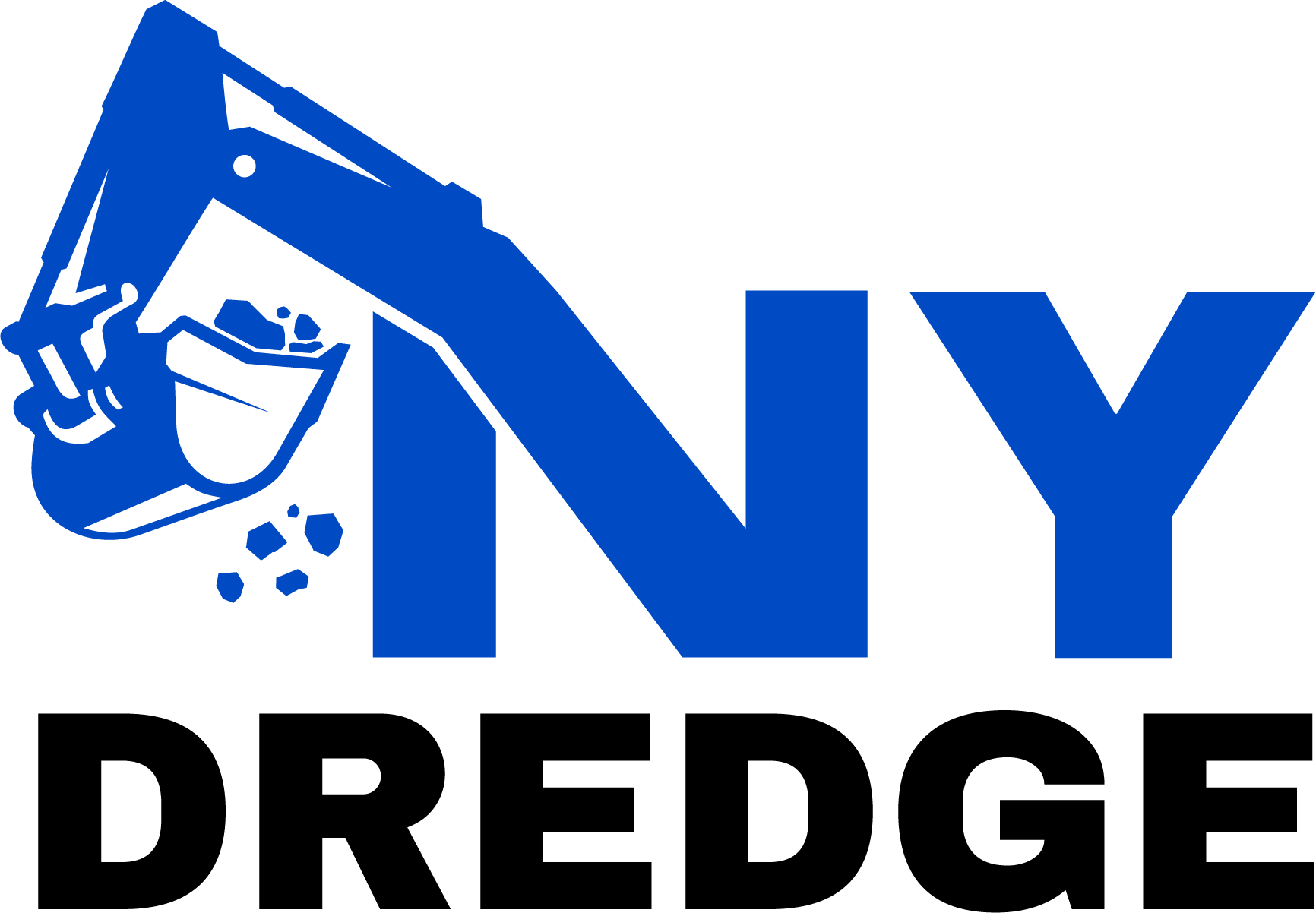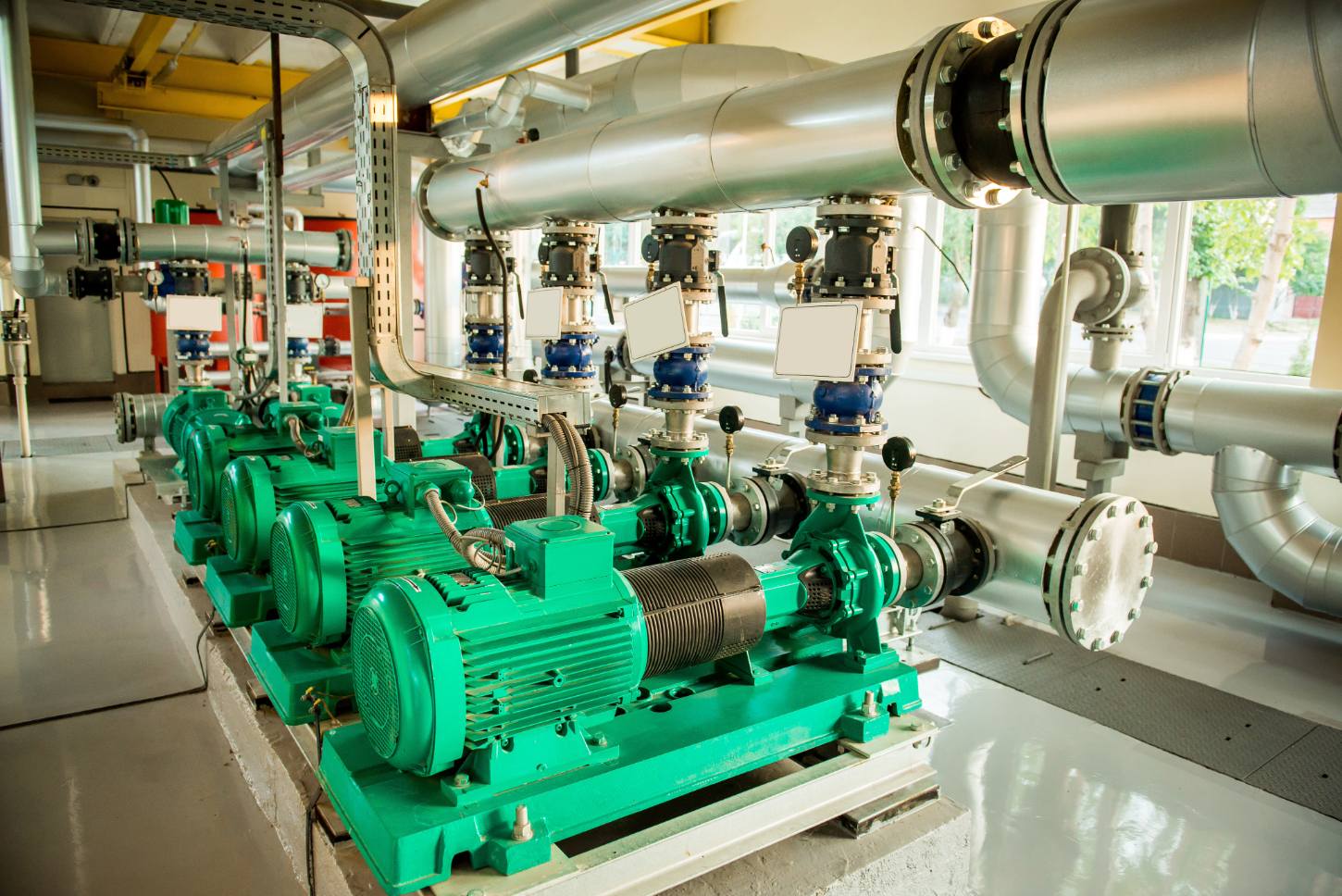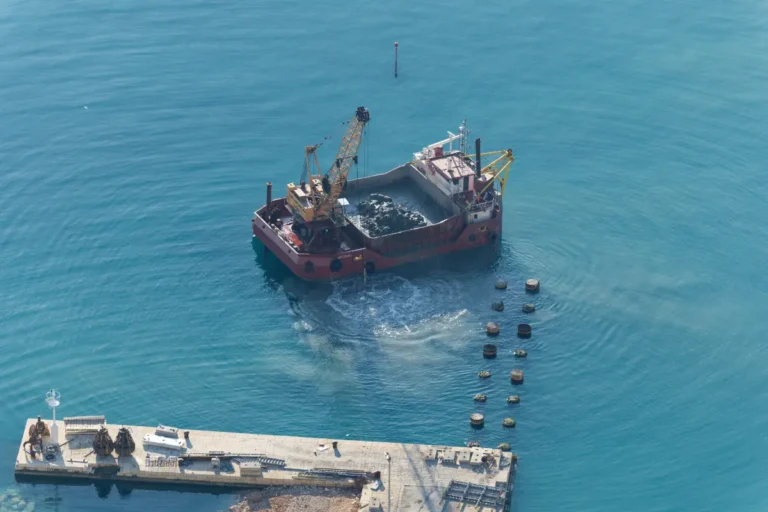In fast-paced industries where downtime can result in significant losses, industrial pump rental services have become a crucial solution for maintaining operations and meeting project deadlines. Whether it’s for emergency dewatering, handling abrasive slurries, or bypass pumping during infrastructure repairs, renting a pump offers a flexible and cost-effective alternative to purchasing equipment outright.
Choosing the right industrial pump rental is not just about availability—it’s about ensuring the equipment aligns with the specific requirements of your operation. A mismatched pump can result in inefficient performance, increased energy consumption, or even equipment failure, all of which affect safety and reduce return on investment. When selected correctly, a rental pump can help optimize fluid handling processes, reduce labor costs, and keep projects on schedule without the burden of long-term ownership or maintenance.
Industries that commonly rely on commercial pump rental solutions include construction, mining, dredging, oil and gas, and municipal utility services. Each sector has unique pumping challenges, such as managing slurry, transferring water over long distances, or conducting sediment removal. In applications such as sediment control and waterway maintenance, dredge pump rentals are especially vital, providing specialized equipment tailored for demanding environments. From deep pits on construction sites to remote mining operations, industrial pump rentals play a foundational role in enabling reliable and efficient pumping solutions.
Benefits of Industrial Pump Rentals
Opting for an industrial pump rental offers multiple advantages for businesses that need to manage fluid transfer operations without incurring the long-term costs and maintenance of ownership. Whether you’re tackling a temporary project or responding to an urgent pumping need, rentals provide a flexible solution tailored to your exact requirements.
One of the most notable benefits is cost-efficiency. Purchasing a high-capacity pump can be a substantial capital investment, especially if the equipment will only be used occasionally. Renting allows businesses to pay only for the duration needed, freeing up budget for other critical project areas. Additionally, most commercial pump rental agreements include built-in maintenance and service, which reduces the burden on your internal teams and minimizes unexpected repair costs.
Project flexibility is another key advantage. Industrial operations often face unpredictable conditions, from sudden flooding to shifting job scopes. With a rental, it’s easy to scale up or down, swap equipment types, or adjust specifications as the project evolves. This is particularly valuable in applications such as mining or dredging, where the fluid composition and volume can change over time. In these cases, dredge pump rentals are ideal for meeting specific sediment removal or slurry transfer needs without a long-term commitment.
Moreover, rental providers typically offer modern, high-performance equipment that complies with the latest safety and environmental standards. This ensures that rented pumps deliver reliable performance, energy efficiency, and minimal downtime—all of which are essential for maintaining productivity and regulatory compliance.
Common Types of Rental Pumps and Their Applications
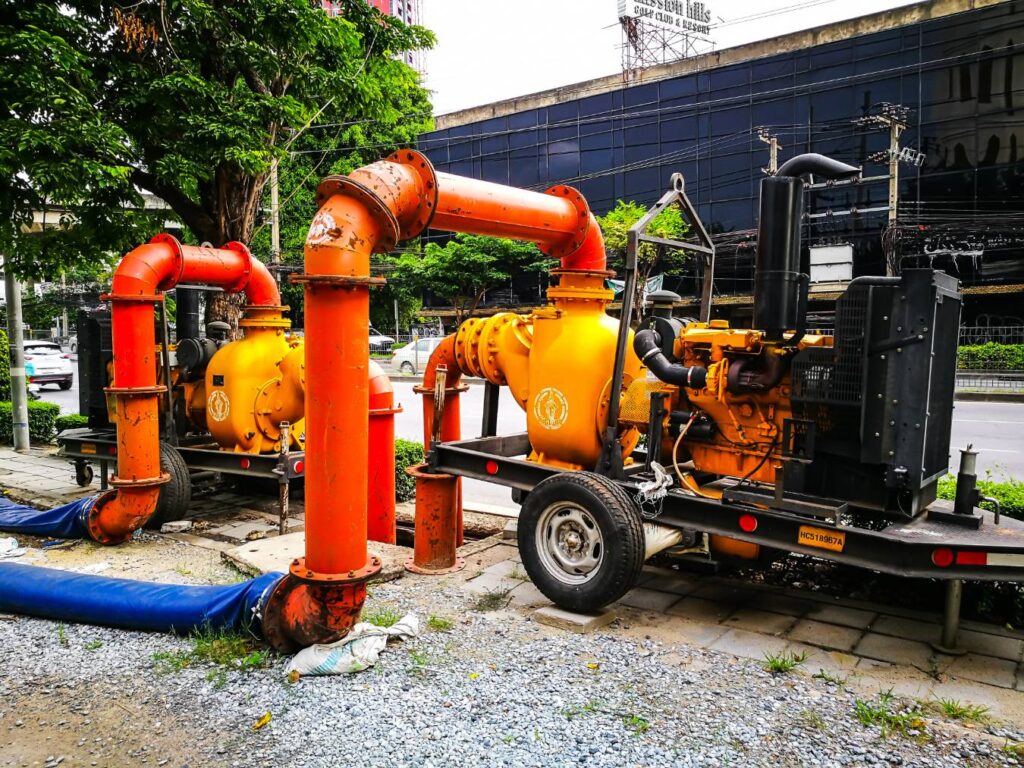
Understanding the types of pumps available for rent is crucial when selecting the right industrial pump rental for your specific application. Each pump is engineered to handle particular fluid properties, flow rates, and operating environments. Here’s a breakdown of the most commonly rented pump types and where they’re best utilized:
Centrifugal Pumps
Centrifugal pumps are the most frequently used in commercial pump rental due to their versatility and ability to handle large volumes of water with low viscosity. They’re ideal for dewatering construction sites, flood control, and municipal bypass projects. These pumps are often mounted on trailers for easy transport and deployment.
Submersible Pumps
Designed to operate while fully submerged in liquid, submersible pumps are ideal for deep pits, maintenance holes, or flooded basements where suction lift pumps would fail. They are frequently used in wastewater management, mining slurry operations, and emergency drainage.
Trash Pumps
Trash pumps are designed to handle fluids laden with solids, making them essential for construction and industrial cleanup sites. They can pass debris without clogging and are commonly used for stormwater runoff or wastewater with high sediment levels.
Diaphragm Pumps
These positive displacement pumps are highly effective for transferring thick, abrasive, or corrosive fluids. Diaphragm pumps are especially useful in chemical processing and environmental cleanup where precision and durability are critical.
Dredge Pumps
When it comes to moving high-solid content, such as sand, silt, or sediment, dredge pump rentals are the go-to choice. These powerful pumps are designed for demanding environments, such as riverbed restoration, lagoon cleaning, and removing mining tailings. Many dredge pumps can be mounted on skids, floating platforms, or cable-deployed systems, depending on the jobsite conditions.
High-Pressure Pumps
These pumps are used in industrial applications that require elevated pressure, such as pipeline testing, tank cleaning, or hydrostatic testing. High-pressure pumps deliver precise control over flow and PSI, ensuring compliance with testing standards.
Each of these pump types can be tailored to meet the unique needs of your project. Reputable industrial pump rental providers often assist in matching the right equipment to your specific site conditions and objectives.
Key Factors to Consider When Choosing an Industrial Pump Rental
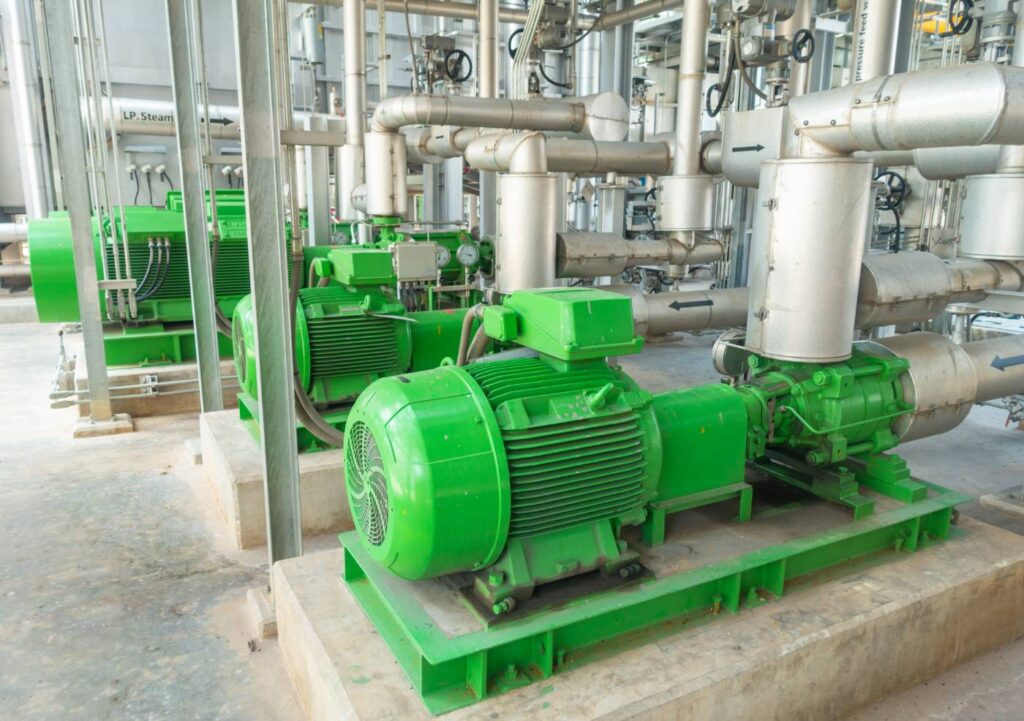
Selecting the right industrial pump rental involves more than just picking a pump that moves liquid—it’s about aligning the pump’s capabilities with your project’s unique requirements. Choosing the wrong equipment can result in inefficiency, increased operating costs, or even equipment failure. To make an informed decision, consider the following key factors:
Project Requirements
Start by evaluating the fundamentals: flow rate (GPM), total dynamic head (TDH), and the type of fluid being pumped. For example, clear water, abrasive slurry, or sludge will each require different types of pumps. If you’re dealing with thick sediment or solids, dredge pump rentals are better suited than general-purpose centrifugal pumps.
Fluid Characteristics
Understanding the chemical composition, temperature, and solid content of the fluid is crucial. Highly corrosive or abrasive materials may require pumps constructed from specialized materials such as stainless steel or high-chrome alloys. This ensures a longer lifespan and reduces maintenance needs throughout the rental period.
Power Source Availability
Determine whether your site has access to electricity or if diesel-powered units are required. Remote or off-grid locations often rely on diesel-powered commercial pump rental options, while municipal and industrial facilities may prefer electric pumps for energy efficiency and reduced emissions.
Site Conditions and Accessibility
Evaluate the site’s physical layout. Will the pump be used in a confined space? Will it need to be trailer-mounted, skid-mounted, or submersible? Consider lift height, suction distance, and hose routing—all of which influence the type and configuration of the rental pump.
Rental Duration and Total Cost of Ownership
Short-term rentals may be straightforward, but longer projects require careful cost analysis. In addition to daily or weekly rental rates, factor in delivery, setup, fuel consumption, and potential service or standby fees. A good industrial pump rental provider will offer transparent pricing and help calculate the total expected cost.
Support and Service Options
Ensure your rental comes with technical support, maintenance, and replacement guarantees. Time is money, and having access to 24/7 assistance can prevent costly delays if equipment issues arise.
The Importance of Working with a Reliable Rental Provider
When it comes to industrial pump rental, the quality of the equipment is only as good as the provider standing behind it. A trusted rental partner plays a critical role in the success of your operation—not just by delivering the right pump, but by ensuring dependable service, responsive support, and technical expertise from start to finish.
Access to Expert Guidance
Reputable rental providers offer more than just equipment—they deliver engineering insight. From evaluating your site to recommending the most suitable pump, experienced teams help you avoid costly missteps. Whether you’re navigating high-viscosity fluid, variable suction conditions, or uneven terrain, the right provider ensures your commercial pump rental is optimized for performance and safety.
Well-Maintained, Ready-to-Deploy Equipment
Time is money, especially in emergency or high-stakes operations. A reliable provider conducts rigorous testing and regular preventive maintenance on all rental units, minimizing the risk of on-site failure. Pumps should be inspected, serviced, and delivered with detailed documentation to guarantee operational readiness.
On-Site Setup and Support
Many projects, especially those involving dredge pump rentals or remote deployments, require field support. A top-tier provider can assist with installation, system integration, and operational training, helping crews get up and running quickly. Some also offer on-site troubleshooting services, ensuring uninterrupted productivity.
Custom Solutions and Accessories
No two jobs are alike. From discharge hoses and floats to diesel-powered trailers and control panels, reliable partners provide a full ecosystem of compatible accessories tailored to your specific job site conditions. This simplifies logistics and ensures system compatibility.
Emergency Response and 24/7 Availability
Unplanned shutdowns or weather-related events can’t wait until morning. That’s why dependable rental providers offer round-the-clock availability for delivery, support, or replacements. If something goes wrong, you want a team that acts fast to keep your project on track.
Specialized Rentals: Dredge Pump Rentals for Marine and Mining Applications
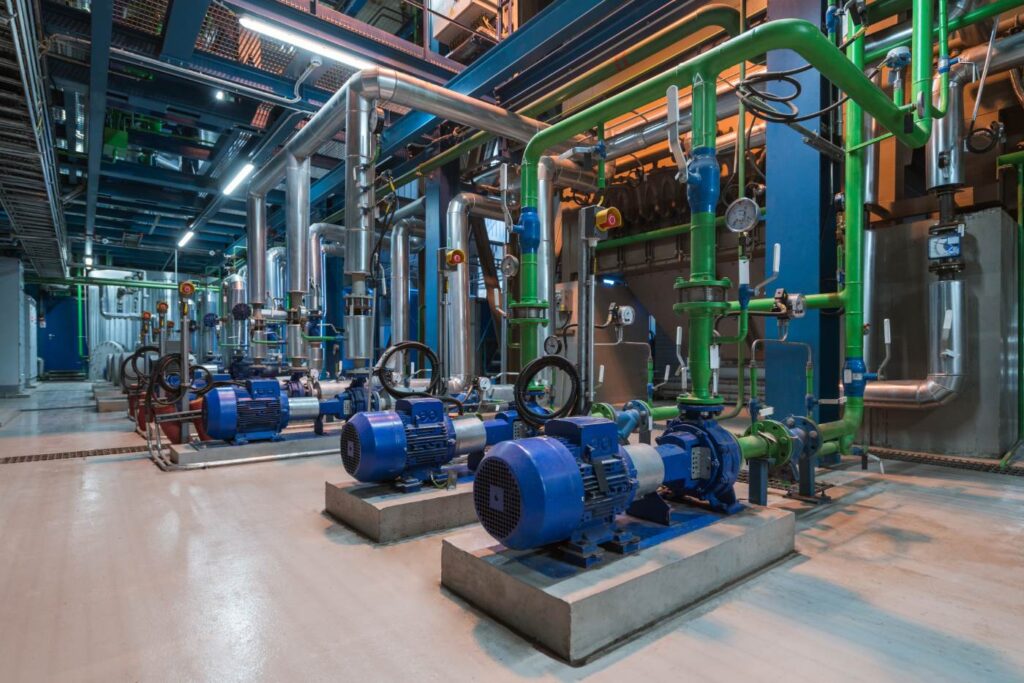
In industries such as mining, marine construction, and environmental remediation, standard pumping solutions often fail to meet requirements. These operations demand specialized equipment capable of handling high-solids content, abrasive slurry, and variable flow conditions. That’s where dredge pump rentals come into play, offering purpose-built performance for some of the most challenging job sites.
Why Choose Dredge Pump Rentals?
Dredge pump rentals are designed specifically for tasks involving sediment removal, slurry transport, and material recovery. Unlike conventional pumps, dredge pumps are engineered to withstand wear from rocks, sand, and other abrasive materials. They also offer higher solid-handling capabilities, making them ideal for applications like tailings ponds, riverbed maintenance, or underwater excavation.
Key Applications
- Mining Operations: Transporting tailings, dewatering pits, and removing slurry from ore processing systems.
- Harbor and Marine Dredging: Restoring navigational depth, shoreline protection, and environmental sediment removal.
- Environmental Projects: Removing contaminated sludge or restoring wetlands and lagoons.
In these demanding conditions, using general industrial pump rental options may result in frequent breakdowns or insufficient throughput. Dredge pump rentals, on the other hand, offer the heavy-duty reliability these jobs require.
Types of Dredge Pumps Available
Depending on the application and site constraints, you can rent:
- Submersible Dredge Pumps – Deployed directly into the slurry for efficient material removal in deep or submerged areas.
- Cable-Deployed Dredge Pumps – Suspended from cranes or hoists for targeted sediment extraction.
- Remote Operated Dredge Units – Ideal for hard-to-reach or hazardous areas requiring precision and a minimal workforce.
- Amphibious Excavator Attachments – Combine excavation and pumping in one for swampy or shoreline conditions.
What to Look for in a Dredge Pump Rental
- Abrasion-resistant materials (high-chrome, elastomers)
- Ability to handle high solids concentration
- Compatibility with suction boosters and floating hose systems
- Customizable flow and head parameters to meet specific job needs
Choosing the right dredge pump rental can significantly reduce downtime, improve productivity, and ensure compliance with environmental standards. For any operation dealing with sediment-laden or slurry-rich environments, dredge pumps are not just beneficial—they’re essential.
Mistakes to Avoid When Renting Industrial Pumps
While industrial pump rental services offer flexibility and cost savings, selecting the wrong equipment or provider can lead to unnecessary setbacks and additional expenses. To ensure your rental experience supports rather than hinders your project, watch out for these common mistakes:
Renting the Wrong Type of Pump
Not all pumps are created equal. Using a centrifugal pump for high-viscosity fluids or selecting a general-purpose unit instead of a specialized dredge pump rental can result in operational failure, reduced performance, and equipment damage. Always match the pump to the application, fluid type, and flow requirements.
Ignoring Site-Specific Conditions
Site logistics—such as elevation changes, suction lift distance, access restrictions, and power availability—play a critical role in pump selection. Overlooking these factors can lead to underperforming systems or costly workarounds. For instance, a submersible pump may be more effective in deep pits where a trailer-mounted pump would fail.
Underestimating Solids or Abrasives
Many pumping operations, especially those in mining or dredging, involve abrasive materials that quickly wear down standard equipment. Choosing a rental pump not designed for high solids can lead to breakdowns and expensive repairs. In such cases, commercial pump rental providers should recommend abrasion-resistant models, such as those built with high-chrome or reinforced elastomers.
Overlooking Maintenance and Support Options
A low rental rate doesn’t always equal long-term value. Some providers offer minimal post-delivery support or fail to maintain their equipment properly. Ensure your provider includes 24/7 technical assistance, replacement guarantees, and preventive maintenance throughout the rental term.
Failing to Clarify Rental Terms
Hidden fees, unclear duration clauses, or penalties for returning equipment can quickly inflate costs. Always read the rental agreement carefully and confirm:
- What’s included in the base price
- How long does the quoted rate apply
- Terms for extending or ending the rental
- Responsibilities for fuel, transportation, or servicing
Final Checklist Before Confirming a Rental
Before signing off on any industrial pump rental, it’s important to run through a comprehensive checklist to ensure that the equipment, service terms, and provider all meet your project’s specific needs. This final step can prevent costly oversights and help you avoid delays once operations begin.
Confirm Pump Specifications Match Project Requirements
Double-check that the pump’s rated flow, head, and materials of construction align with the fluid type and operational demands. For high-solids or abrasive media, ensure the unit is purpose-built, especially when renting a dredge pump.
Verify Power Compatibility
Ensure the pump system matches the available power supply at your site, whether it is diesel, electric, or hydraulic. This includes confirming voltage, phase, and generator capacity, if required.
Assess Delivery and Setup Logistics
Ask about delivery timelines, lead times, and support with installation. Some commercial pump rental providers offer turnkey services, including hose connections, skids, trailers, and flow control accessories.
Review Maintenance and Support Provisions
Reliable service and emergency response are non-negotiable. Confirm that your rental includes:
- 24/7 technical support
- On-site repair or equipment swap if needed
- Routine servicing and preventive checks during longer rentals
Clarify the Total Rental Cost
Understand the complete pricing model:
- Hourly, daily, or weekly rates
- Fuel and transportation charges
- Cleaning or late return penalties
- Insurance or liability coverage
Inspect the Equipment (If Possible)
If feasible, inspect the pump before deployment. Reputable providers maintain clean, functional, and properly tested units. A visual or documented inspection ensures the pump arrives job-ready.
Conclusion
Choosing the right industrial pump rental is a strategic decision that can directly impact your project’s efficiency, safety, and bottom line. Whether you’re managing flood control, dredging operations, or heavy-duty slurry pumping, selecting the right pump type for your site requirements is essential. By understanding your application, avoiding common rental mistakes, and partnering with a reliable provider, you can ensure smooth operations and maximize your ROI. From general commercial pump rental needs to specialized dredge pump rentals, the right rental solution empowers your team to tackle complex fluid-handling challenges without the long-term burden of ownership.
